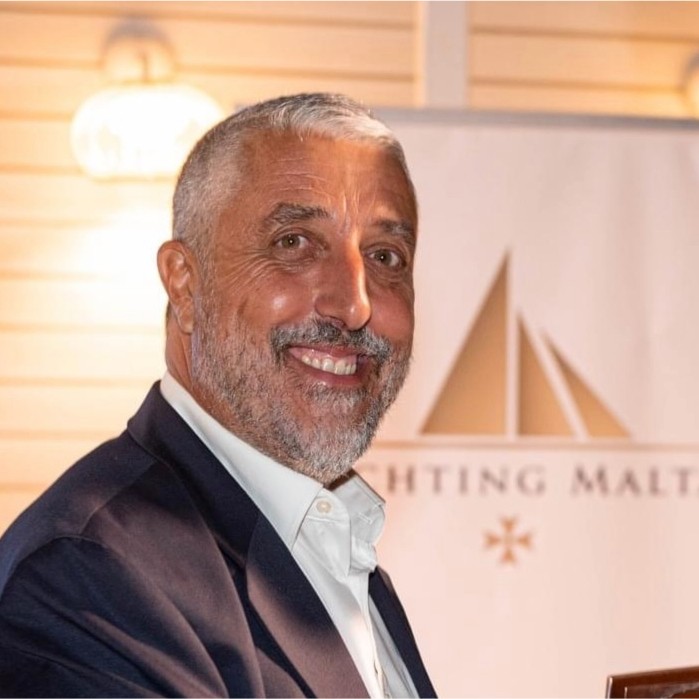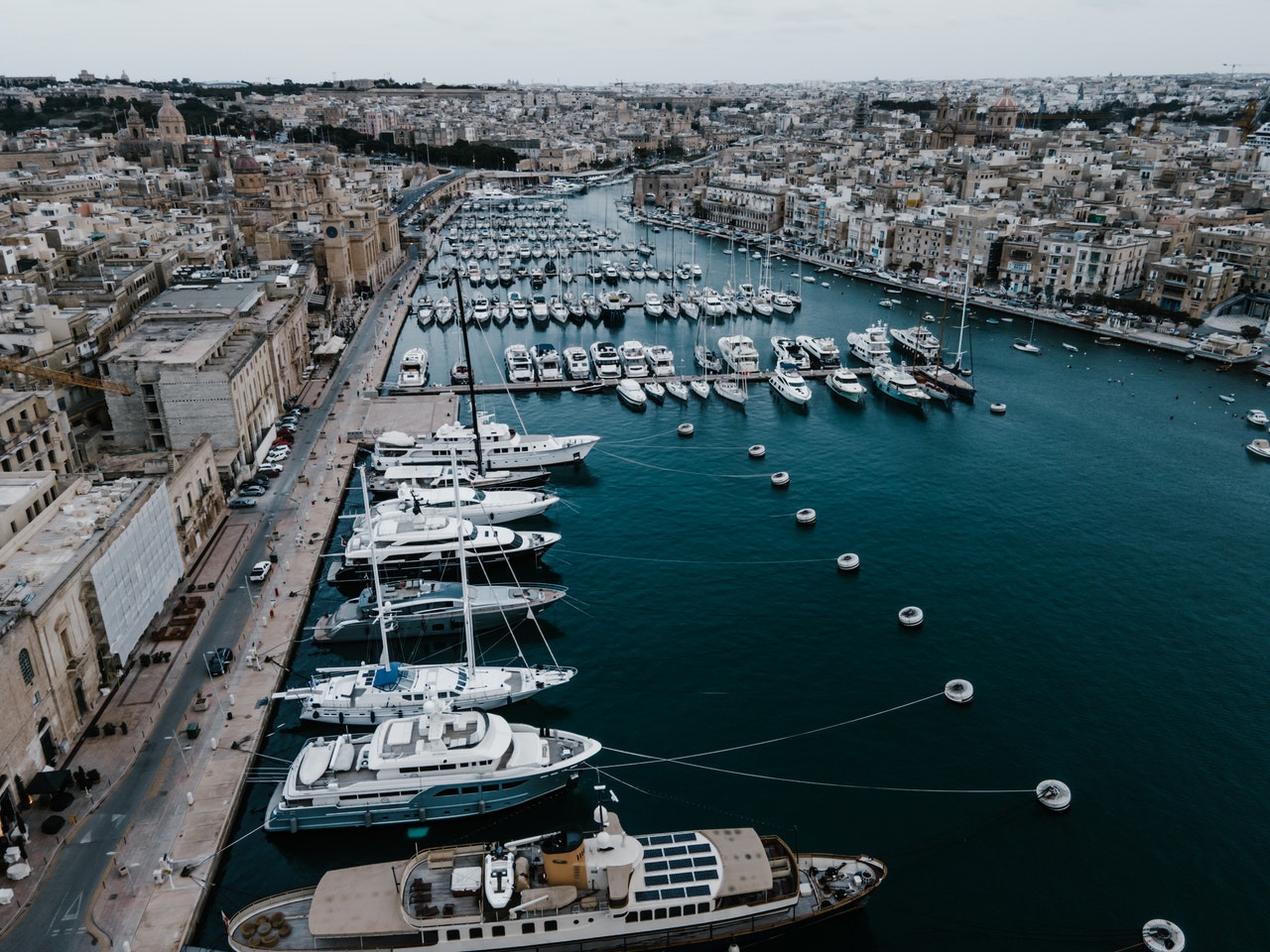This week, Malta launched a vision document for the superyacht industry with the aim of making the country a jurisdiction of choice for the owners and operators of these floating assets. While most public attention was drawn to the announcement that the Government will be actively looking for new sites to develop into new yacht marinas – a matter of controversy following significant backlash to plans for a marina in Marsaskala in late 2021 and early 2022 – the document presents a large number of proposals that are worth looking into in more detail.
The document features several action points to be worked on in the coming months and years, including the development of a national strategy with incentives and schemes to promote a more sustainable and green yachting industry, actions required to ensure that Malta has available the alternative fuels required for a green yachting industry, and a plan to attract innovative start-ups in the maritime and superyacht industry.
The Government aims to position Malta as “a test-bed for new and innovative technologies together with strong incentives to bring over companies that need to test technology.”
Existing yacht yards will be helped to diversify their offering through specialisation, setting them apart from competitors, while incentives are being considered for those clients that opt to make use of the full range of services available, including refits, repair and maintenance.
The potential for Malta to become a winter base for refit and charter client is significant, according to the document, which floats the idea of offering special berthing prices for yacht winter in Malta.
There are plenty of other measures that could be pursued, from encouraging superyacht financiers to set up in Malta to establishing Malta as a centre for crew training and fast-tracking work permits of crew members who want to live on-shore. The country also needs to become more embedded into the industry’s culture, by increasing physical presence in yacht shows like those in Cannes (in fact, Malta made its debut there this year), Fort Lauderdale, Palma Dusseldorf and Genoa, while air connectivity with the south of France and Mallorca, destinations popular with superyachts, should be improved through direct flights to to enhance Malta’s position as a logistical base and place it at par with other countries.
Meanwhile, institutional backbone of the industry would be developed by establishing a centralised autonomous authority that will strengthen coordination across the different Government entities involved in the sector. This would include, for example, collaboration with Transport Malta to promote the superyacht industry in Malta abroad.
Speaking to BusinessNow.mt, head of Fenech & Fenech Advocates’ yachting department Alison Vassallo says that the establishment of a designated entity to encompass the industry would “allow both increased focus and timeliness in the adoption of administrative decisions while also strengthening the delineation the identity of the maritime sector.”

Dr Vassallo also chairs the yachting section within The Malta Chamber, which was entrusted with leading three of the five focus groups that formed part of the consultation undertaken by the Yachting Steering Committee set up after the first Malta Superyacht Symposium.
These three focus groups were the Fiscal, Legal and Administration, Training and Certification and Refits, Technical and Infrastructure. The two other focus groups forming the subject of the consultation process focused on Vision and Mission and Chartering and Commercial Management.
“The subject matter of these focus groups in themselves provides an indication of the key components of the vision of the authorities for this sector going forward,” says Dr Vassallo.
Describing the vision document as a “roadmap for the superyacht industry going forward,” she says the first step is “the undertaking of an extensive economic impact assessment which will inform and model the national policy which is the next step of the project.”
She continues: “The document represents both the dedication and firm commitment of the authorities and the private sector to the strengthening and continued development of this niche industry and is also a manifestation of the fruitful results that can be achieved through their collaboration.”

Stephanie Fabri, an economist and chair of the Yachting Steering Committee, says that “this document shows the value of consultation, with interested parties coming together to devise a way forward for the transformation of the Maltese superyacht ecosystem. As a niche within the broader maritime sector, this strategy is a plan for the further diversification of existing economic sectors. This will contribute to sustainable economic growth by increasing value added and high quality jobs. It is certainly a step in the right direction for Malta’s economic vision.”
The document also indicates the Government’s intention to partner with the private sector to facilitate the hosting of major superyacht events such as regattas, boat shows and superyacht conferences. Touching on the importance of such events, Yachting Malta CEO Michael Mifsud tells BusinessNow.mt that yachting events “generate a substantial income both to the organisers but especially to the national economy in general.”
He continues: “Yachting Malta as a private public partnership has organised such events in the past and plans to continue organising such events. The economic benefit lies not only in the direct spending of the participants in Malta like registration fees, bed-nights, food and beverage, haul outs and refits, chandlery expenses, taxis and other transportation, but also includes international media exposure on major international channels.”
Pointing to an economic impact assessment commissioned by Yachting Malta on the economic impact of the Rolex Middle Sea Race in 2019, Mr Mifsud says that such events attract high net-worth competitors whose daily expenditure while in Malta is substantially higher from the average traveller leaving a higher return for Malta.

The economic impact assessment he refers to, carried out by Grant Thornton, shows that the average daily spend of participants and their families reached €193, which is €81 higher than the average tourist, while 94 per cent of those who visited Malta specifically for the race said that they would be back.
“These events also act as a work generator for shipyards in Malta with major competitors opting for works done on their boats while these are in Malta before the event.”
Turning to the question of developing new yacht marinas, Mr Mifsud says that “any development in any location needs to be preceded by a stakeholder analysis” to ensure that impacts both positive and negative are addressed prior to the publication of the development in any location.
“There is no denying that yacht marina development has brought positive economic and lifestyle improvements to the location everywhere and not least locally. However the concerns of the locality need to be addressed and the locality needs to have its concerns addressed to mitigate any detrimental effects to the area and the residents,” says Mr Mifsud.
“Marinas need to be regarded as spaces for the enjoyment of an outdoor lifestyle, for boaters and residents alike. I firmly believe that certain areas of Marsa and Marsamxett can be transformed into high level marina developments and they will in turn upgrade the area they are developed in. However the process of consultation with all stakeholders prior is of paramount importance.”
255 third-country nationals ordered to leave Malta in first quarter of 2025
Returns across EU rise, but Malta’s numbers remain modest
Inbound sea tourism dips by 2.3% in early 2025
The overall outlook for Malta’s tourism sector still remains optimistic
Transport Malta tight-lipped on enforcement plans for white taxis and coaches
Uncertainty also remains over the technology used and how enforcement will be applied






